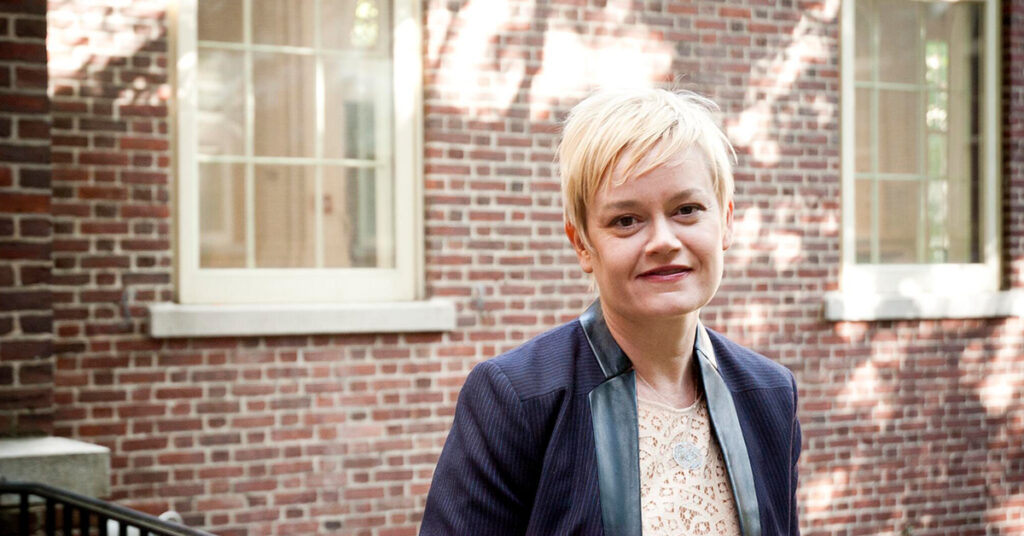Wheaton humanities institute to explore ‘normal’ theme

Conversations, programming will connect to questions around health, power, equity
What does it mean to have a “normally” functioning body and mind? The answer is far from simple, requiring a deep dive into understanding societal values while examining issues related to power, inequity and bodily autonomy. The complexity and wide scope of the question prompted the Wheaton Institute for the Interdisciplinary Humanities (WIIH) to choose this inquiry as the basis of its programming for 2022–23.
“It’s a really rich question for the humanities, and the role of WIIH is connecting humanities with other fields of study,” said Professor and Chair of History of Art Ellen McBreen, who serves as the current WIIH director and recently announced the theme.
“Our theme was chosen for potential synergy with Wheaton’s new nursing and design majors. Also, the recent pandemic has made us all appreciate our fragility and the impermanent nature of health and what we see as a healthy life,” McBreen said.
WIIH was established by Provost Touba Ghadessi and former professor Gen Liang in 2012 to offer students opportunities to explore the humanities as they apply in various intellectual and professional contexts. The institute invites scholars, artists and other experts based on an annual theme and encourages thoughtful exchange in and beyond the Wheaton community.
On Thursday, September 29, in Weber Theatre, the institute will kick off its new theme with an artistic performance by Dominic Quagliozzi called “Medical History [Part One].” In the live show, Quagliozzi will share his experience as a person with chronic illness and disability.
The artist, whose work is in the permanent collection at Rhode Island School of Design Museum, has given workshops and lectures at medical facilities to help practitioners consider patient perspectives.
In the spring, WIIH will launch the series “Designing for Difference,” inviting designers, scholars and activists to campus to discuss their practice in public talks. All of these guests approach design as an agent of social change, imagining solutions for the realities of human diversity. This series will complement McBreen’s “Design History and Theory” course in the spring that was created for the new design program.
“With any kind of practical skill-based pursuit, like design, the ‘how’ is very important, but there is also the question of ‘why.’ The humanities get us to dig deeper into the ‘why” of what we do and make,” McBreen said.
Student involvement, specifically through a student executive committee, also will play a part in shaping WIIH programming.
“Besides connecting humanities to other fields of study, WIIH gives students an opportunity to take learning that is happening in the classroom and apply it to real-world situations. I’m meeting with students to ask them what they want to see in the programming. I want to hear from them,” McBreen said.
